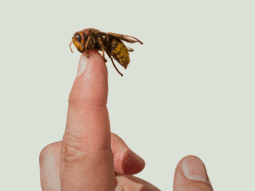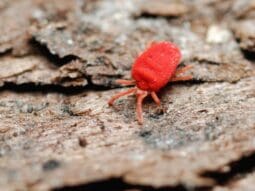
Looking for reliable pest control services in your area can feel overwhelming, especially when you need the problem solved quickly. With multiple companies promising effective solutions, it's crucial to know what factors truly matter before making your decision.
When selecting a pest exterminator near you, several key considerations can help ensure you get quality service worth your investment. From comparing pricing packages and reading customer reviews to verifying professional credentials and understanding treatment methods, taking time to evaluate these aspects will lead to better results. Many homeowners find that the cheapest option isn't always the most cost-effective in the long run, as comprehensive service packages often provide better value by preventing recurring infestations.
Key Factors to Consider When Searching for Pest Control Services
Compare Pricing and Service Packages
Comparing pricing and service packages helps you find the best value for your specific pest problem. Get quotes from multiple exterminators and evaluate the cost of their services, including initial treatments and follow-up visits. The cheapest option isn't necessarily the best—consider what's included in each package. Many companies offer comprehensive plans covering multiple treatments to ensure complete pest elimination. Look for hidden costs such as inspection fees, emergency service charges, or cancellation penalties that might affect the total price. Quality pest control services often provide detailed breakdowns of their pricing structure, giving you transparency about what you're paying for.
Ask About Their Pest Control Methods
Understanding a company's pest control methods reveals their approach to pest management. Ask potential exterminators about the techniques and products they use, including treatment options like fumigation, baiting, or heat treatments. Effective companies typically employ integrated pest management (IPM) strategies that combine multiple approaches rather than relying solely on chemical treatments. Inquire about their monitoring processes and how they prevent re-infestation. Companies using cutting-edge technology and research-backed methods often provide more effective, longer-lasting results than those using outdated techniques.
Ensure They Offer Eco-Friendly, Pet and Child Friendly Solutions
Eco-friendly pest control solutions protect your family, pets, and the environment while effectively eliminating pests. Ask potential exterminators about their environmentally responsible options that minimize chemical pesticide use. Modern eco-friendly approaches focus on targeted treatments rather than widespread chemical application. Companies committed to sustainability often use botanical insecticides, beneficial insects, or exclusion techniques that create physical barriers to prevent pest entry. These methods reduce your household's chemical exposure without compromising on effectiveness. Reputable companies balance pest elimination needs with environmental responsibility, offering green alternatives alongside traditional treatments.
Inquire About Warranty and Follow-Up Services
Warranty and follow-up services indicate a company's confidence in their work and commitment to customer satisfaction. Ask potential exterminators about their service guarantees and what happens if pests return after treatment. Quality pest control companies typically offer re-treatment guarantees covering specific time periods, such as 30 days or several months depending on the pest type. Understand the terms and conditions of these warranties, including any actions that might void the guarantee. Regular follow-up visits ensure treatment effectiveness and address any emerging issues before they become major problems. Companies providing comprehensive follow-up services demonstrate their dedication to long-term pest management rather than quick, temporary fixes.
Qualifications and Credentials
Professional qualifications and credentials serve as essential indicators of a pest control service's reliability and expertise. These formal validations ensure technicians have the necessary training to handle pest issues safely and effectively in your home.
Licensing and Certifications
Legitimate pest control companies maintain current state-issued licenses that authorize them to perform extermination services. Verify that any service provider holds valid licenses from relevant state agencies such as departments of agriculture, which regulate pest control operations. A certified licensed pesticide applicator must be employed by the company to legally apply treatments. Professional pest control operators often belong to industry organizations like the National Pest Management Association, demonstrating their commitment to industry standards and continuing education.
Licensing requirements include:
- State operational license (verify current status)
- Certified pesticide applicator credentials
- Workers' compensation insurance coverage
- General liability insurance protection
- Membership in professional pest control associations
Always disregard companies with expired licenses, as this indicates potential regulatory compliance issues and raises concerns about their professional standards.
Experience and Expertise
Experience in pest management directly correlates with effective treatment outcomes. Established pest control companies develop specialized knowledge about local pest species, seasonal patterns, and region-specific treatment protocols. Ask potential service providers about their years in business and inquire about the credentials of the specific technician who will handle your pest issue.
Key expertise indicators include:
- Employment of certified specialists
- Implementation of Integrated Pest Management (IPM) strategies
- Specialized training for specific pest types
- Regular staff certification updates and continuing education
- Documented success with similar infestations to yours
Experienced providers can accurately identify entry points, understand pest behavior patterns, and employ targeted solutions rather than one-size-fits-all approaches. When evaluating a company's expertise, request information about their treatment success rates and specialized certifications for handling your specific pest problem.
Service Offerings and Approach
Quality pest control services offer comprehensive approaches tailored to your specific pest issues. Examining a company's service philosophy and treatment methodologies gives insight into their effectiveness and environmental responsibility.
Integrated Pest Management (IPM)
Integrated Pest Management represents the gold standard in modern pest control methodology. IPM reduces pesticide usage by focusing on preventive measures rather than reactive treatments. This systematic approach combines inspection, identification, and targeted interventions to address pest problems at their source. Professional pest control providers implementing IPM start with thorough property assessments to identify entry points, harborage areas, and contributing factors to infestations. They then develop customized strategies using multiple control tactics—including biological controls, habitat modification, and mechanical traps—before considering chemical applications as a last resort. IPM techniques work in conjunction with proven pest control treatments to deliver optimal results without excessive chemical use, creating long-term solutions rather than temporary fixes.
Eco-Friendly Solutions
Eco-friendly pest control options have gained popularity as environmental awareness increases. These solutions utilize natural plant-based ingredients that effectively target pests while minimizing risks to humans, pets, and the surrounding ecosystem. When evaluating service providers, ask specifically about their green product offerings and application protocols. Reputable companies offer an array of eco-friendly options suitable for various infestation types, including wildlife control. These environmentally responsible treatments often employ botanical oils, diatomaceous earth, and beneficial microorganisms that break down quickly without leaving harmful residues. The best eco-friendly pest control approaches combine natural products with non-chemical methods like exclusion techniques, moisture control, and sanitation improvements to create comprehensive pest management strategies that protect both your property and the environment.
Assessment of Your Specific Needs
Accurately assessing your pest situation is the crucial first step before contacting any pest control service. Understanding the specifics of your infestation enables exterminators to develop targeted treatment strategies tailored to your property's unique challenges.
Types of Pests in Your Area
Local pest populations vary significantly based on climate, geography, and seasonal patterns. Common household pests include cockroaches, ants, termites, bed bugs, rodents, and mosquitoes—each requiring specialized treatment approaches. For example, termite treatments differ substantially from rodent control methods. Professional exterminators familiar with your region possess knowledge about prevalent local species, their breeding cycles, and behavior patterns. This regional expertise allows them to identify pests correctly and implement effective control strategies based on local conditions. When consulting with pest control services, ask about their experience with specific pests common in your neighborhood for more targeted treatment outcomes.
Customized Treatment Plans
Effective pest management requires individualized approaches rather than one-size-fits-all solutions. Quality pest control services conduct thorough property inspections to identify entry points, nesting areas, and environmental factors contributing to infestations. These assessments consider your property's unique characteristics—home size, construction type, surrounding landscape, and presence of pets or children. Based on these findings, exterminators develop tailored treatment plans addressing your specific pest challenges while accounting for safety concerns. Reputable companies offer different service packages ranging from one-time treatments to comprehensive quarterly prevention programs. When evaluating potential services, prioritize those offering customized solutions that directly address your property's particular pest vulnerabilities rather than standard treatment packages.
Customer Service Quality
Customer service quality is a crucial factor when selecting pest control services near you. Exceptional service ensures your pest problems are addressed promptly and effectively, creating a positive overall experience throughout the treatment process.
Response Time and Availability
Response time directly impacts the effectiveness of pest control treatments. Top pest control companies respond to inquiries within 24 hours and offer flexible scheduling options including weekend and evening appointments. During your initial contact, evaluate how quickly they answer calls, return messages, and their ability to accommodate emergency situations. Companies with 24/7 customer support demonstrate commitment to client needs and understand that pest issues don't follow business hours. Look for exterminators who arrive on time for appointments and maintain consistent communication throughout the treatment process.
| Response Time Metrics | Quality Standard |
|---|---|
| Initial inquiry response | Within 24 hours |
| Emergency response | Same day service |
| Appointment scheduling | Within 3-5 days |
| On-site arrival | Punctual with notification |
Warranty and Follow-Up Services
Warranties and follow-up protocols distinguish professional pest control services from mediocre ones. Reputable exterminators stand behind their work with service guarantees, typically ranging from 30 days to one year depending on the pest type and treatment applied. These warranties ensure they'll return at no additional cost if pests reappear during the coverage period. Quality pest control companies implement structured follow-up schedules to monitor treatment effectiveness and prevent reinfestation. During your research, ask specific questions about their guarantee policies, what they cover, and any conditions that might void the warranty. Companies that offer comprehensive pest management plans with regular inspections provide the best long-term value and demonstrate confidence in their treatment methods.
Cost Considerations
Understanding the financial aspects of pest control services helps you make informed decisions that balance your budget with effective pest management. Comparing costs across different providers reveals significant variations in pricing structures and overall value.
Pricing Structure
Pest control companies typically offer three distinct pricing models: one-time treatments, recurring service plans, and specialized treatments. One-time treatments range from $150-$300 depending on your property size and infestation severity. Recurring service plans average $40-$70 monthly, offering preventative maintenance with scheduled visits every 1-3 months. Specialized treatments for termites or bed bugs command premium prices of $500-$2,000 due to their complexity and equipment requirements.
Additional factors affecting pricing include:
- Square footage of your property (larger homes typically cost 20-30% more)
- Location accessibility (hard-to-reach areas like crawl spaces may incur surcharges)
- Treatment methods (eco-friendly options often cost 10-15% more)
- Seasonal demand (peak season treatments might carry premium pricing)
- Geographic location (urban areas typically have higher baseline rates)
Request itemized quotes from at least three providers to understand exactly what services each price point includes. Many companies offer free inspection visits to provide accurate estimates tailored to your specific situation.
Value for Money
True value in pest control extends beyond the initial price tag to encompass long-term effectiveness and comprehensive service. Quality pest control providers include thorough inspections, detailed treatment plans, and follow-up visits in their standard packages. Companies offering warranties or service guarantees demonstrate confidence in their treatment efficacy and provide financial protection against persistent infestations.
Consider these value indicators when evaluating pest control services:
- Guarantee periods (90-day to 1-year coverage signals quality service)
- Included follow-up treatments (2-3 follow-ups indicate comprehensive care)
- Prevention strategies (education and exclusion methods enhance long-term value)
- Response time for callbacks (24-48 hour response commitments add value)
- Technician qualifications (certified professionals deliver superior results)
The lowest-priced option often excludes crucial components like preventative treatments, resulting in repeated infestations and higher long-term costs. Investing in comprehensive service packages from established providers typically delivers superior outcomes through thorough treatment protocols and ongoing protection measures.
How to Research Local Pest Control Companies
Effective research helps you identify reputable pest control companies in your area. Thorough investigation ensures you find professionals who can address your specific pest concerns efficiently and safely.
Reading Customer Reviews
Customer reviews provide authentic insights into a pest control company's performance and reliability. Look for companies with consistently positive ratings across multiple platforms like Google, Yelp, and the Better Business Bureau. Pay special attention to reviews that mention timeliness, effectiveness of treatments, and professionalism of technicians. Notice how companies respond to negative feedback—professional exterminators address complaints constructively and work toward resolutions. Reviews mentioning successful treatments for your specific pest problem indicate relevant expertise. Companies with hundreds of positive reviews, like those mentioning detailed inspections, transparent pricing, and long-lasting results, demonstrate consistent quality service over time.
Asking for References
References from past clients offer detailed, firsthand accounts of a pest control company's service quality. Request at least 3-5 references from companies you're considering, focusing on clients with similar pest issues to yours. Prepare specific questions for these references: Did technicians arrive promptly? Was the pest problem resolved completely? How many treatments were required? Did the company honor their warranty? What impressed you most about their service? References from long-term clients indicate the company maintains quality over time. Neighborhood references prove especially valuable as they confirm the exterminator's familiarity with local pest challenges specific to your area. Companies willingly providing references demonstrate confidence in their service quality and customer satisfaction levels.
Questions to Ask Before Hiring
Asking targeted questions helps you evaluate pest control services effectively before making a commitment. These inquiries reveal crucial details about their expertise, methods, and reliability that might not be apparent from marketing materials alone.
Service-Specific Questions
Pest control service quality varies significantly between providers. Ask these specific questions to assess their capabilities:
- "What types of pests do you specialize in treating?" - Ensures they have expertise with your specific infestation
- "How do you identify the source of pest problems?" - Reveals their diagnostic approach
- "What treatment methods will you use for my situation?" - Confirms they use appropriate techniques
- "Do you offer integrated pest management options?" - Indicates if they employ modern, comprehensive approaches
- "How will you prevent future infestations?" - Shows their commitment to long-term solutions
Experience and Credentials
Professional qualifications directly impact service quality. Inquire about:
- "How long have you been treating [your specific pest] problems?" - Experience with your particular issue matters
- "What licenses and certifications do your technicians hold?" - Verifies proper training
- "Are your technicians background-checked?" - Important for home security
- "Do you carry liability insurance?" - Protects you from potential damages
- "Can you provide examples of similar infestations you've resolved?" - Demonstrates relevant experience
Cost and Value Questions
Clear pricing information prevents unexpected charges. Ask:
- "What does your estimate include and exclude?" - Identifies potential add-ons
- "Are there additional charges for follow-up visits?" - Many infestations require multiple treatments
- "Do you charge by square footage or by service type?" - Affects overall cost
- "What payment methods do you accept?" - Ensures compatibility with your preferences
- "Are there discounts for ongoing service contracts?" - Might provide cost savings
Treatment and Safety Protocols
Understanding treatment protocols protects your health and property. Inquire about:
- "Are the products you use safe for children and pets?" - Critical for households with vulnerable members
- "How long must we vacate the premises during treatment?" - Helps you plan accordingly
- "What preparation is required before treatment?" - Ensures effective application
- "What potential side effects might occur from the treatments?" - Prepares you for possible reactions
- "How do you minimize environmental impact?" - Reveals their commitment to eco-friendly practices
Guarantees and Follow-Up
- "What kind of warranty or guarantee do you offer?" - Provides recourse if treatments fail
- "How soon can you return if pests reappear?" - Tests their responsiveness
- "Is there an additional charge for retreatment if needed?" - Clarifies potential extra costs
- "What's your typical follow-up schedule?" - Shows their commitment to resolution
- "How do you document and track treatment effectiveness?" - Indicates systematic quality control
Romex Pest Control: Texas, Oklahoma, Mississippi and Louisiana
Romex Pest Control delivers comprehensive pest management solutions across four southern states. Their service area spans major metropolitan regions and rural communities throughout Texas, Oklahoma, Mississippi, and Louisiana, making them an accessible option for homeowners dealing with regional pest challenges.
Service Coverage Areas
Romex's extensive coverage includes both urban centers and suburban neighborhoods. Their technicians are familiar with the unique pest challenges in each region, from termite infestations common in Louisiana's humid climate to fire ant problems prevalent in Texas. This regional expertise allows them to implement targeted treatment protocols specific to local pest behaviors and patterns.
Regional Pest Expertise
Different states face distinct pest challenges based on their climate and geography. Romex technicians receive specialized training on pests native to each service area. In Texas, they address scorpion infestations and rodent problems, while in Oklahoma, their focus extends to tick control and wasp management. Mississippi and Louisiana properties benefit from their moisture pest expertise, including termite prevention programs and mosquito reduction services.
Local Scheduling and Response Times
Romex's multi-state presence is organized through local service hubs that maintain quick response capabilities. Their scheduling system prioritizes emergency pest situations with same-day or next-day service options in most coverage areas. This localized approach ensures technicians arrive promptly despite servicing a large geographical territory. Tech teams arrive in clearly marked vehicles and maintain communication throughout the service process.
State-Specific Licensing and Compliance
Pest control regulations vary significantly between states. Romex maintains active licensing in all four states where they operate, adhering to the specific requirements of each state's agricultural department and regulatory agencies. Their technicians complete state-mandated continuing education to stay current with changing regulations and treatment protocols across all service territories.
Conclusion
Choosing the right pest control service requires balancing quality treatment methods with fair pricing and excellent customer service. By verifying credentials asking targeted questions and reading customer reviews you'll find a provider that meets your specific needs.
Remember that regional expertise matters as local technicians understand the unique pest challenges in your area. Prioritize companies offering comprehensive inspections customized solutions and strong guarantees over one-size-fits-all approaches.
The best pest control partner won't just eliminate your current infestation but will help prevent future problems through education and preventative measures. Take time to research your options thoroughly—your family's comfort and your home's protection are worth the investment in a truly professional pest management service.
Frequently Asked Questions
How do I choose the right pest control company?
Select a pest control company by comparing multiple quotes, verifying licenses and credentials, reading customer reviews, and understanding their treatment methods. Ask about their experience with your specific pest problem and whether they use Integrated Pest Management (IPM) techniques. Consider their response time, customer service quality, and whether they offer warranties or guarantees for their work.
What factors affect pest control pricing?
Pest control pricing varies based on property size, location, severity of infestation, type of pest, treatment methods required, and seasonal demand. Companies typically offer one-time treatments, recurring service plans, or specialized treatments. Always request itemized quotes from multiple providers to understand exactly what services are included and watch for potential hidden costs.
Why is the cheapest pest control service not always the best choice?
The cheapest pest control service often provides only temporary solutions that address symptoms rather than root causes. Quality pest control companies invest in proper training, effective products, comprehensive inspections, and follow-up treatments—which cost more but deliver better long-term results. Investing in quality service initially can prevent recurring infestations and reduce costs over time.
What is Integrated Pest Management (IPM)?
Integrated Pest Management is a comprehensive approach to pest control that minimizes reliance on chemical treatments. IPM combines multiple strategies including prevention, monitoring, cultural controls, physical barriers, and targeted chemical applications when necessary. This science-based approach addresses pest problems at their source while reducing risks to human health, beneficial organisms, and the environment.
How important are certifications and licenses for pest control companies?
Certifications and licenses are essential indicators of a pest control company's legitimacy and expertise. Reputable exterminators hold current state-issued licenses and employ certified pesticide applicators. These credentials verify that technicians have received proper training in safe and effective pest management techniques. Always ask to see proof of licensing and insurance before hiring a pest control service.
How can I tell if a pest control company is environmentally responsible?
Environmentally responsible pest control companies prioritize eco-friendly solutions and Integrated Pest Management (IPM) approaches. They use targeted treatments rather than broad applications, offer green product options with natural ingredients, and focus on prevention strategies. Ask about their environmental policies, chemical usage protocols, and whether they practice IPM before making your decision.
What should I expect during a professional pest inspection?
During a professional pest inspection, technicians will thoroughly examine your property's interior and exterior, identifying active infestations, potential entry points, and conditions that attract pests. They should check basements, attics, crawl spaces, kitchens, bathrooms, and the perimeter of your home. Afterward, they should provide a detailed assessment and a customized treatment plan addressing your specific situation.
How often should pest control treatments be performed?
Treatment frequency depends on your specific pest issues, property conditions, and local pest pressures. Most residential properties benefit from quarterly preventative treatments, while severe infestations may require monthly visits initially. Seasonal treatments target pests during peak activity periods. A professional exterminator will recommend an appropriate schedule based on your unique situation and the pests involved.
What questions should I ask before hiring a pest control service?
Ask potential pest control services about their experience with your specific pest problem, treatment methods and safety protocols, licensing and insurance, cost structure and what's included, guarantees and warranties, and follow-up procedures. Request references from past clients with similar issues, and inquire about their approach to environmental responsibility and Integrated Pest Management.
How do I know if a pest control treatment was effective?
An effective pest control treatment results in a noticeable reduction in pest activity within the timeframe specified by the provider. Quality companies establish clear expectations about when results should be visible and provide follow-up inspections to verify success. They should also offer advice on preventing future infestations and respond promptly if pest activity persists despite treatment.
We hope you enjoy these informational articles. If you'd like to learn more about our eco-friendly pest control services, call (844) 955-2447.
Read More
Your Path to a Pest-Free Home or Business
Romex Pest Control
We are committed to protecting you, your children, and your pets with our eco-friendly, child-friendly, and pet-friendly guaranteed pest control solutions.
Romex Pest Control is fully insured and licensed in Texas, Oklahoma, Louisiana, and Mississippi.
Service Areas:
Hours
M-F 8 am–5 pm
Sat 8 am–2 pm
Sun Closed
Established 2016 © Copyright 2025 Romex Pest Control










